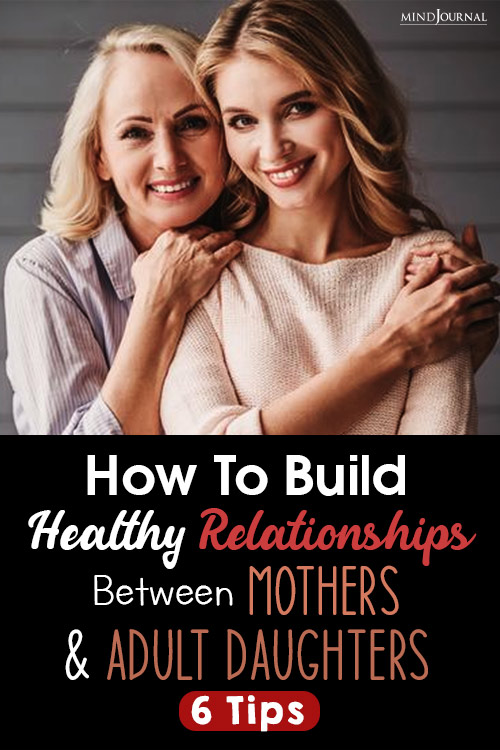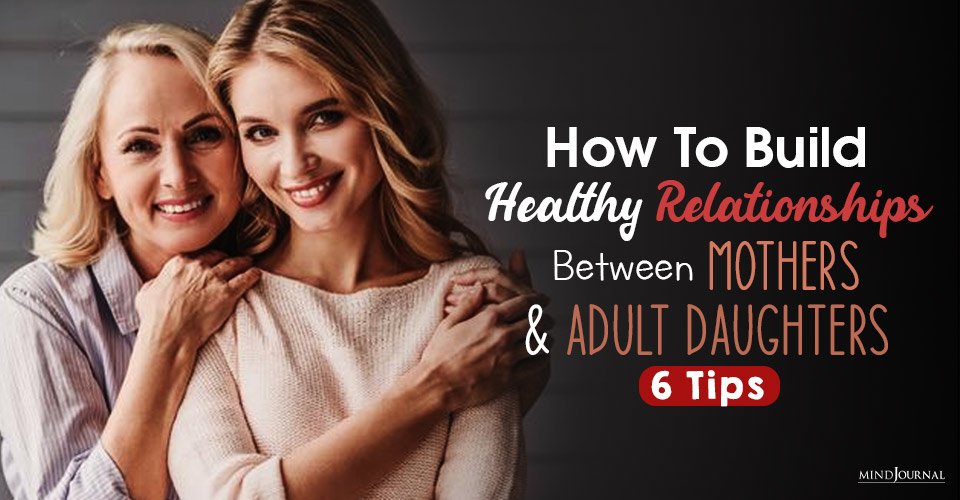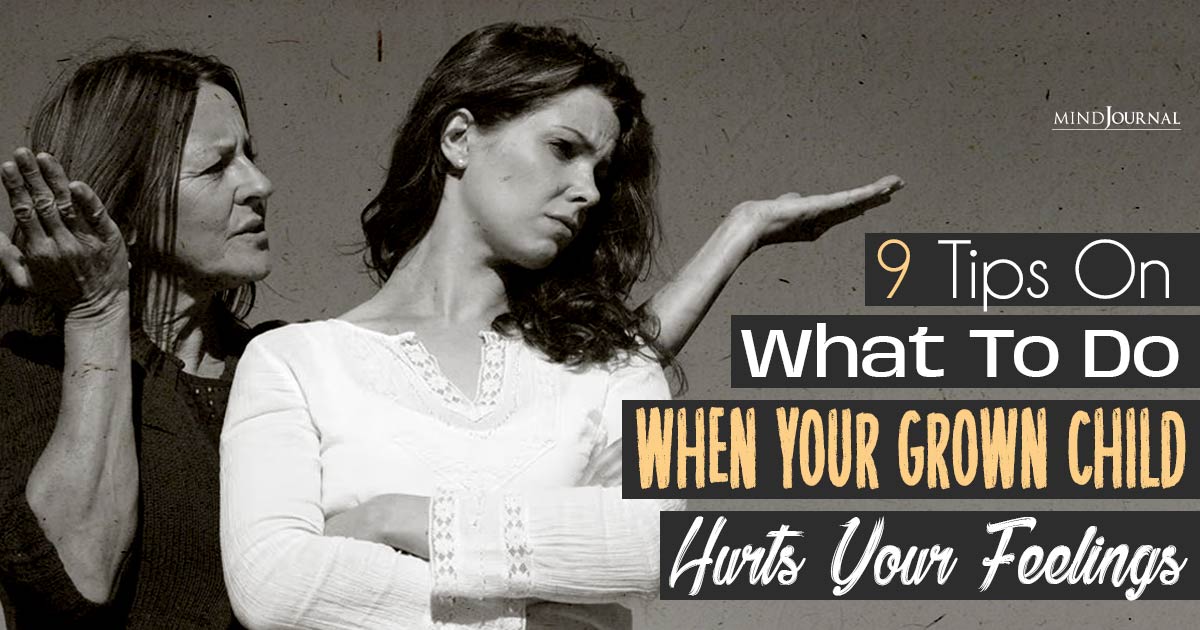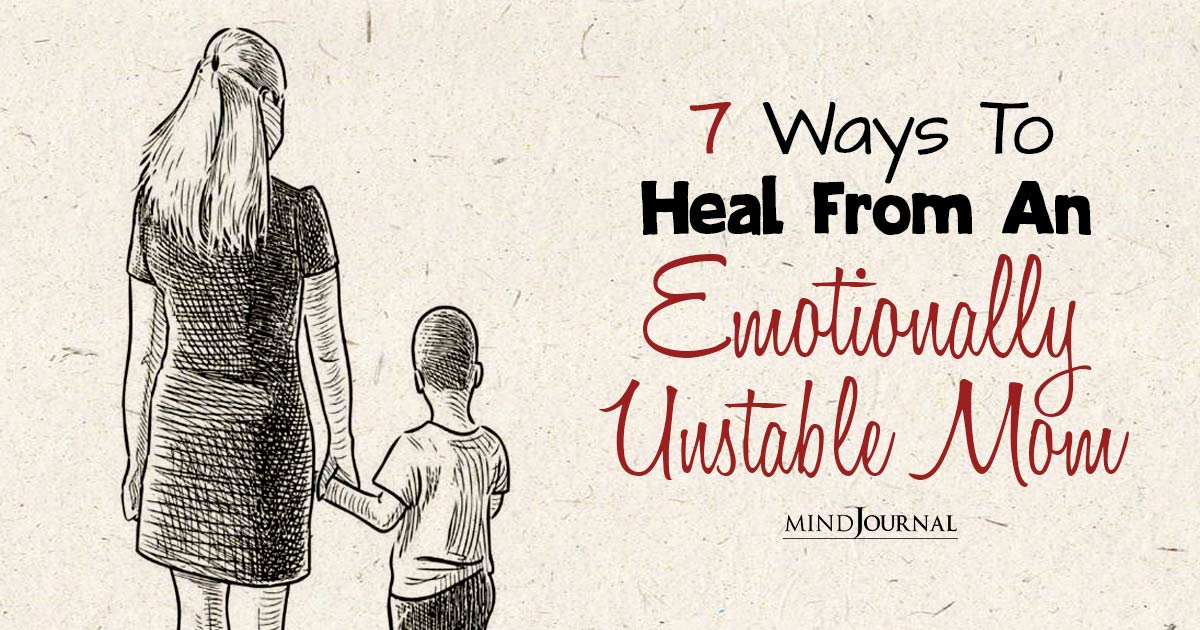Here’s a surprising idea for a healthy relationship between adult daughters and mothers.
“My adult daughter is in a serious relationship. I think it’s a good one for her, and I don’t want her to mess it up like she did her last one,” said Margot,* a businesswoman in her 50s.
“My mom is my best friend. I tell her everything. Is there something wrong with that?” said Elaine,* a mom who had decided to stay home to bring up her children.

“My daughter never brings my grandchildren over to visit. I always have to initiate any time with them,” Jeanette,* a schoolteacher, told me.
“My mom never asks to see her grandchildren. I always feel like I’m imposing when I ask her to come for a visit. Shouldn’t she want to spend time with my children?” asked Liz,* a single mother.
Although mother-daughter relationships are often idealized in our minds, in reality, they are frequently complex and surprisingly complicated. They are also highly varied. There are cultural differences in how mothers and daughters relate to one another as we get older. Every relationship between mom and daughter changes over time, but they also take many different forms, even within the same culture — or the same family.
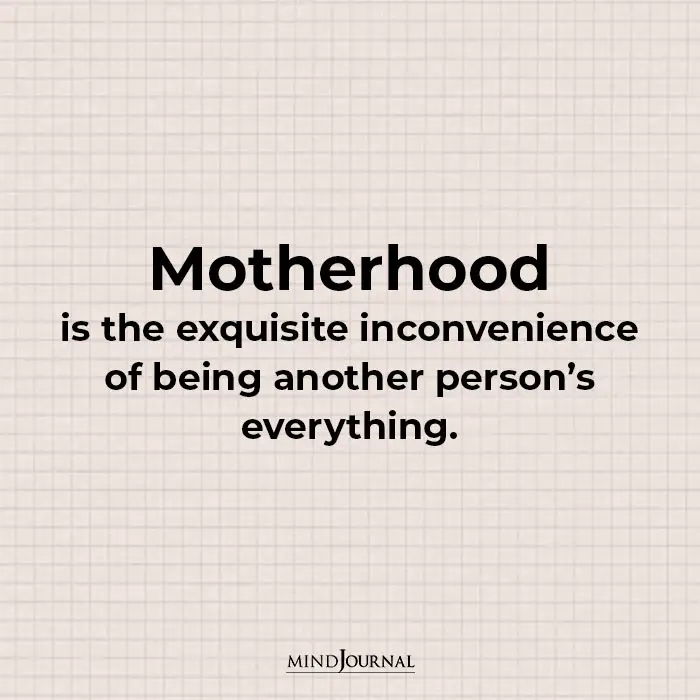
We all know that there are toxic mother-daughter relationships that can’t be repaired no matter what you do. Yet there are other relationships that seem to be in trouble that, with the help of a few changes, can become healthy, positive connections between adult daughters and mothers.
Although we have many ideas about these all-important relationships, most of our beliefs are based on personal experience and widely held opinions. However, in a major in-depth survey on the topic, Dr. Diane K. Shrier and her colleagues found that very little scientific research has been done on mother-daughter relationships between the end of adolescence and old age.
Like many psychotherapists, I have gathered a great deal of anecdotal information about mother-daughter relationships over the years. My own observations fit closely with the findings of a group of psychoanalytic theorists who have noted that while traditional Western theories focus on the importance of increasing separation and independence as we get older, for many women a healthy adult sense of self comes from a growing capacity for ever more complex relationships. Empathy and mutual support are two of the key components of these connections.
The following suggestions are drawn from my belief that relationships play an extremely important role in our self-esteem, sense of who we are, and our ability to cope with our feelings.
Mother-daughter relationships often have different meanings and may be given different power in a person’s life; but one of the important things to remember is that as daughters mature into adulthood, these connections must, in some ways, be dealt with as any other relationship between two adults.
Therefore, many of the suggestions below are also applicable to other important adult bonds.
6 tips for healthy relationship between mothers and adult daughters
1. Expectations
Contemporary cultures have a number of conflicting expectations for mothers and daughters. In some, daughters are expected to be submissive to and always respectful of their mothers’ desires, while in others, young women are expected to move away from their mothers’ influence and develop their own independent goals and interests.
Often these mutually exclusive expectations come into conflict. For instance, one woman, a first-generation United States citizen, felt that she had always been encouraged to be independent and successful, unlike the women of her mother’s culture.
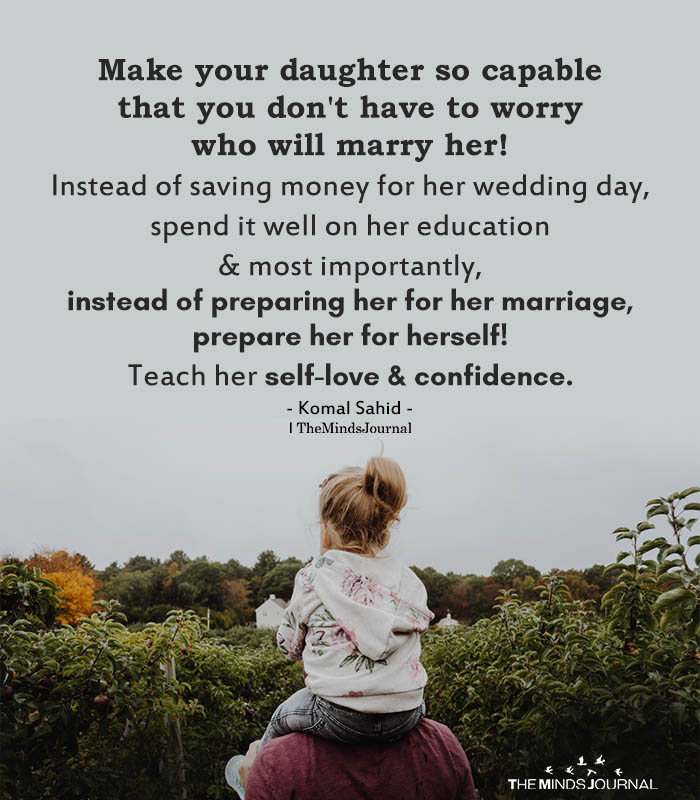
Yet when she fell in love with a man from a very different culture, her parents became enraged that she was not following the very traditions from which they had always encouraged her to separate herself. When she married that man, her mother stopped speaking to her.
Sometimes conflicting expectations come from a mother’s experience of her own mother. “My mother always took care of her mother,” said one woman, disappointed that her daughter had moved far away and was not interested in her life at all. “They talked on the phone or saw one another every single day of my grandmother’s life.”
And sometimes these expectations come from a daughter’s beliefs about what her mother should be doing. This was the case for Liz*, who wanted her mother to pay attention to her grandchildren. “She was never a child-focused person,” Liz told me. “I always hoped she would give my children what she wasn’t able to give me.”
One of the dynamics I hear repeatedly in my work is that mothers and adult daughters have difficulties accepting that they do not — and cannot — meet one another’s expectations. I often suggest that in adulthood it is helpful to think of your mother or your daughter not as someone who is supposed to do anything, but as you would a friend, whose limitations are something you accept as part of her personality.
A friend might disappoint you for any of a number of reasons, but you are likely to cut her some slack if you think it is because she is having difficulties in her own life, or because she is extremely busy with things other than you, or because she simply cannot do something the way you’d like her to do it. Thinking of your mother or your daughter in this way makes it easier not to take her behavior personally — in other words, not to make it about you — and can improve the chances that the relationship will continue to be meaningful for both of you.
2. Mutual Respect
Following closely on the heels of expectations, mutual respect means accepting that there are things about your mother or daughter that you appreciate. Trying to remember those qualities, even in the middle of an argument or a disagreement, can go a very long way to protecting your relationship.
Also read 7 Signs Of A Toxic Daughter In Law And How To Cope
3. Respect for Difference
Mothers and daughters often fall into the trap of thinking that they should think and feel the same way — about almost everything! Yet in adult relationships, while similarities might provide the glue, differences are often what provide interest.
Try to find out why and how your mother or adult daughter thinks about something, and try not to fall into the trap of thinking that you already know. Because while you have a long history together, you certainly do not know everything about how you each think, feel, or understand the world.
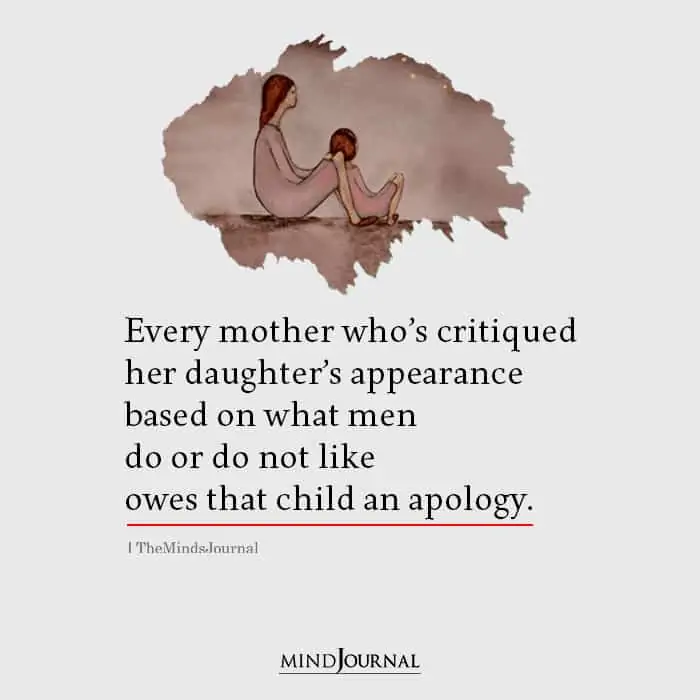
4. Boundaries
One of the areas that mothers and adult daughters often struggle with has to do with recognizing that in adulthood we don’t have the same rights that we had when one of us was a child. Isabel Allende has written about her struggle to find boundaries with her daughter’s family in her memoir The Sum of Our Days, where she describes her need to walk into her son-in-law’s home to rearrange things.
For her, the bond was with a daughter who was no longer alive, but a gentle reprimand from her son-in-law was all she needed to remind herself that there were still important boundaries that she needed to respect. While the connection is all-important, separateness is crucial to protect the links.
Different expectations on the part of a mother and daughter, of course, leave lots of room for hurt feelings over boundaries. Mothers may expect their daughters to do certain things (like bringing their grandchildren over) without asking, but daughters may feel that they need to know that they aren’t imposing. This was what happened in both Jeanette and Liz’s situations, but neither of them found this out until the hurt feelings and resulting anger had created a serious rupture in their respective relationships.
Even in situations where mothers and daughters are close friends, boundaries are crucial. Elaine, whose mother was her best friend, told me that they were very careful to protect one another’s space.
“My mom is respectful of my needs and my personal time with my husband and my children,” she said. “And vice versa. I’m always careful to make sure that she has her time with her activities.”
5. Supporting Other Relationships
Closely related to the issue of boundaries is the matter of respecting and supporting relationships outside of the mother-daughter bond. Because of feeling extremely close, it is sometimes hard to accept that either mother or daughter can have other important connections; but those connections actually help enrich the relationship the two of you have.
A single relationship can become strained by the expectations placed on it. But other attachments can provide balance. One woman told me that her mother’s respect for her relationships made it possible for her to have friends and to have a successful career, which in turn strengthened her connection to her mother.
Also read 5 Ways Fathers Impact a Daughter’s Romantic Relationships
6. Communicate
Talking about how you are feeling and clarifying situations helps to maintain all of the above. But how you communicate is extremely important. Accusing, attacking, and simply expressing disappointment is likely to keep you bogged down in a relationship stalemate. Expressing your feelings and making space for your mother or daughter to talk about her own can create a stronger connection.
When Liz finally spoke to her mother about feeling hurt that she never seemed to want to visit with her grandchildren, her mother was horrified. “I kept getting the sense that you wanted me to butt out,” her mother said. “You never seemed to be eager to try to find a time for us to get together, so I just backed off and waited for you to let me know what would work.”
They agreed that they would try to make their wishes clearer to each other rather than try to read one another’s minds in the future. “The problem,” Liz said, “is that we always think we do know each other so well. I guess that’s part of the downside of mother-daughter links, isn’t it?”
The sense that we know one another is indeed one of the problems since it means that sometimes we don’t communicate, or don’t put into words what we think is already known.
Also read Daughters of Narcissistic Mothers: Why They Are Never Good Enough
Talking about these things helps. But sometimes we think we shouldn’t say something because it will not come out the way we want it to. This was part of the problem for Elaine. Her daughter was involved with another woman, and she didn’t want to sound critical or controlling. She wanted to be supportive but didn’t feel that she had the right words, so she remained silent.
Finally, she decided the best way to approach the problem was to state her conflicts directly: “I told her that I really liked her new partner, and I didn’t want to say anything that would be problematic; but that I also wanted her to know that I was there to support her if she ever wanted to talk about any of it.”
Her daughter initially reacted with irritation, saying that she would be sure to ask if she needed any relationship advice. But Elaine replied, “I’m not offering you advice. I feel like you’re pushing me away, and if I’m overstepping your bounds, then just say so. You’re a grown woman with lots of smarts. I’m just letting you know that I’m here and that I love you.”
Her daughter apologized immediately, explaining that she was feeling insecure about the relationship and that she sort of needed to keep her walls up. But she appreciated her mother’s expression of love and support and would definitely talk to her when she was ready.
One of the most important things that Shrier and her colleagues found in their survey were that conflict is part of all relationships. In fact, they suggest, conflict helps both members of a relationship grow. So mother and adult daughter relationships do not need — in fact, should not — be all rosy and loving; they simply need to be adult.
copyright @ fdbarth2019
Written by: F. Diane Barth Originally appeared on: Psychology Today Republished with permission
